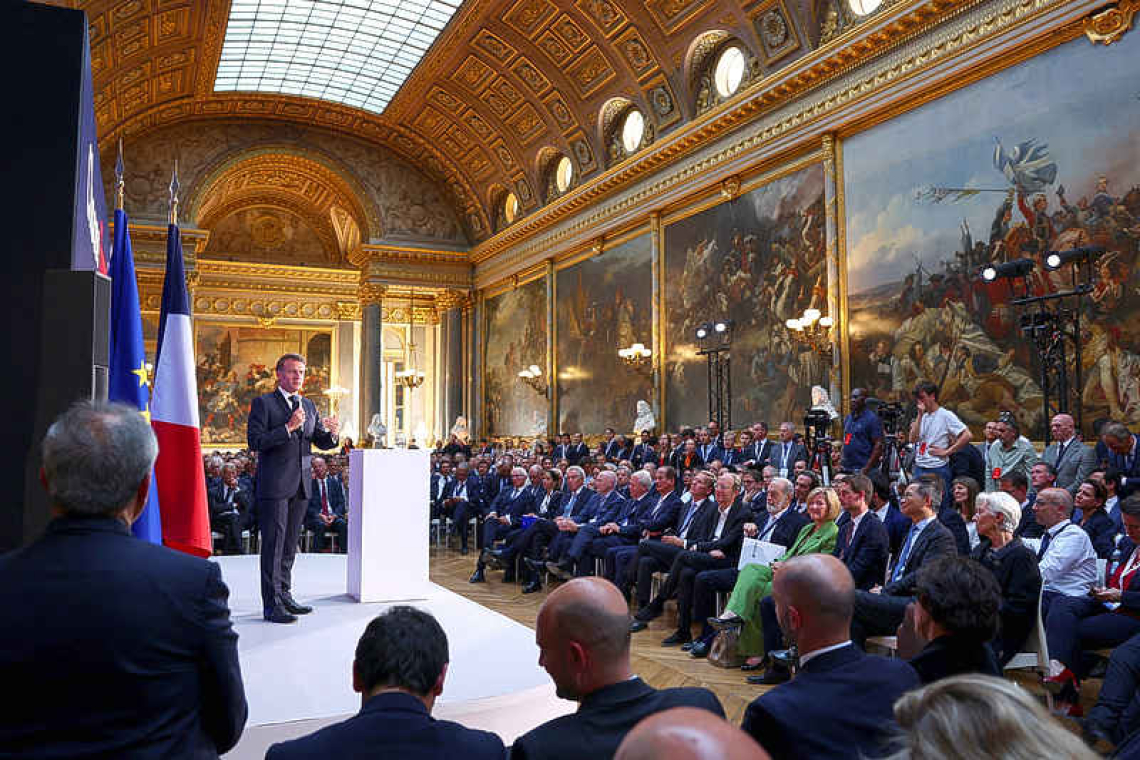PARIS--This year's "Choose France" business summit is set to secure 20 billion euros ($22.47 billion) of new investment, French President Emmanuel Macron said, announcing projects in defence, energy and industry as well as in artificial intelligence.
Macron's personal efforts to woo international business leaders, making the Choose France summits at the opulent Palace of Versailles a must-attend for the global corporate elite, have been credited for a turnaround in past investor perceptions of France as a high-tax, rigid economy. On top of the 20 billion euros in new investments, Macron also announced some 20 billion euros worth of AI-focused projects pledged at a Paris AI summit in February.
"You delivered a lot of investments in different fields: AI, telco, ... green hydrogen, and circular economy ... this is a very complete edition where 20 billion were invested, and 20 billion of AI investments as a follow-up to the summit in February," Macron told CEOs and entrepreneurs in Versailles.
Among the pledges made ahead of the summit, U.S. logistics giant Prologis is set to invest 6.4 billion euros in four data centres in the Paris region, while London-based fintech Revolut plans to invest 1 billion euros over the next three years on expanding in France and will apply for a French banking licence.
Announcements also came from the United Arab Emirates' AI-focused MGX fund and others were expected from companies ranging from Amazon to Britain's Less Common Metals Limited in the rare earth sector. Portuguese company Tekever will build a drone assembly factory in the southwest, a 100 million euro investment, the Elysee said.
Macron's government is under pressure to stem a wave of job cuts in industry, as upheaval fuelled by U.S. President Trump's trade policies puts further pressure on Europe's flagging economy. "We have to invest much more in AI, green tech, defense and security, especially because this is a race," Macron said.
France has been the leading recipient of international investments in Europe for the past six years, according to EY's European Investment Monitor, an annual survey of thousands of business leaders that Macron’s advisers have seized on as evidence his cocktail of supply-side reforms has been bearing fruit.
However, this year’s edition shows the number of investment projects has declined for the second consecutive year across Europe, while those in the United States rose by a fifth between 2023 and 2024, which EY said reflected the appeal of the Inflation Reduction Act subsidy package and Trump’s pro-business promises.Despite the foreign investment flows into France, Macron has failed to stop French companies from making huge investments abroad, with Sanofi’s plan to spend at least $20 billion to boost manufacturing in the United States angering French politicians.







